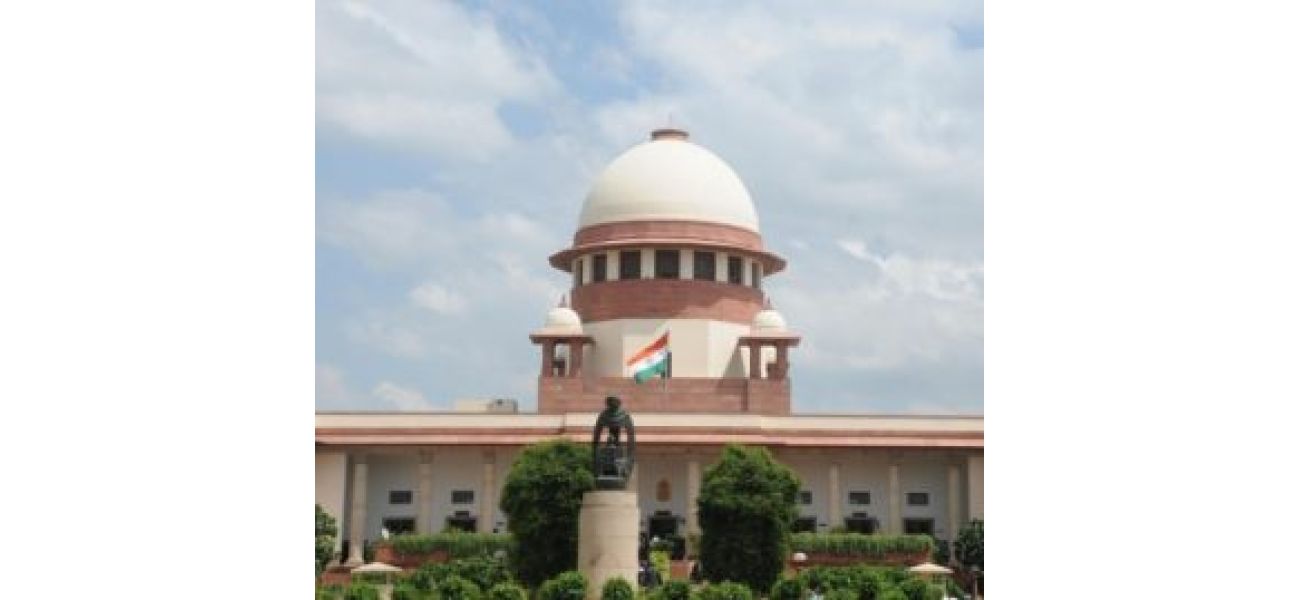Verdict on Kejriwal's plea against CBI arrest and for bail reserved by Supreme Court.
Supreme Court reserves verdict on Kejriwal's bail plea in liquor policy corruption case.
September 5th 2024.

New Delhi: After hearing arguments from both sides, the Supreme Court has reserved its decision on Delhi Chief Minister Arvind Kejriwal's plea regarding his arrest by the Central Bureau of Investigation (CBI) and his request for bail in the corruption case related to the alleged liquor policy scam. Justices Surya Kant and Ujjal Bhuyan presided over the hearing, listening to the points put forth by senior counsel Abhishek Manu Singhvi, representing the Aam Aadmi Party (AAP) leader, and Additional Solicitor General SV Raju, who appeared on behalf of the CBI.
During the hearing, Singhvi argued that the CBI did not arrest Kejriwal for the past two years, but suddenly made a hasty decision to arrest him in order to prevent his release in the money laundering case. He further stated that Kejriwal's arrest was based on his "non-cooperation and evasive replies," despite the fact that there are several Supreme Court judgments that state cooperation with the investigation does not require the accused to incriminate themselves or confess to any alleged offenses.
Singhvi also pointed out that Kejriwal, as a constitutional functionary holding the position of Delhi Chief Minister, meets the necessary requirements for bail. He assured the court that Kejriwal is not a flight risk, will cooperate with the investigative agency, and cannot tamper with any evidence, including thousands of pages of documents and digital evidence, after two years.
However, the CBI expressed concerns that releasing Kejriwal on bail could turn many witnesses against him and urged the apex court not to grant him bail. Raju argued that several candidates of the AAP in the Goa Assembly election only came forward to give their statements to the CBI after Kejriwal's arrest. He further stated that these witnesses may turn hostile if Kejriwal is released on bail.
Raju also suggested that Kejriwal's plea for bail should have been presented to the trial court first and not the Delhi High Court. He urged the apex court to take into consideration the contents of the charge sheet filed against Kejriwal, as the trial court had already taken cognizance of it and issued a production warrant for Kejriwal on September 11.
The ASG also clarified that while making an arrest is a routine part of an investigation and does not require court permission, in this case, the CBI had been granted the power to arrest Kejriwal by the court. He added that when an arrest is made based on a court order, the accused cannot claim a violation of their fundamental rights.
It is worth noting that the Supreme Court had previously granted bail to senior AAP leader and former Delhi Deputy Chief Minister Manish Sisodia, BRS leader K Kavitha, and AAP's former communication-in-charge Vijay Nair in the excise policy case.
In his special leave petition filed before the Supreme Court, the AAP convener challenged his arrest and subsequent remand orders, while also requesting bail in the corruption case. However, the CBI argued that Kejriwal was simply trying to politicize the matter, despite the fact that various courts have already taken cognizance of the offenses he is being accused of.
The agency also pointed out that while Kejriwal does not hold any ministerial portfolio in the Government National Capital Territory of Delhi, all decisions made by the government and the party are taken with his concurrence and direction. This includes not only decisions made in Delhi but also throughout the country, where the AAP has a presence.
It is important to mention that on July 12, the Supreme Court ordered Kejriwal to be released on interim bail in connection with the money laundering case filed by the Enforcement Directorate. However, he was unable to leave jail as he was arrested by the CBI.
During the hearing, Singhvi argued that the CBI did not arrest Kejriwal for the past two years, but suddenly made a hasty decision to arrest him in order to prevent his release in the money laundering case. He further stated that Kejriwal's arrest was based on his "non-cooperation and evasive replies," despite the fact that there are several Supreme Court judgments that state cooperation with the investigation does not require the accused to incriminate themselves or confess to any alleged offenses.
Singhvi also pointed out that Kejriwal, as a constitutional functionary holding the position of Delhi Chief Minister, meets the necessary requirements for bail. He assured the court that Kejriwal is not a flight risk, will cooperate with the investigative agency, and cannot tamper with any evidence, including thousands of pages of documents and digital evidence, after two years.
However, the CBI expressed concerns that releasing Kejriwal on bail could turn many witnesses against him and urged the apex court not to grant him bail. Raju argued that several candidates of the AAP in the Goa Assembly election only came forward to give their statements to the CBI after Kejriwal's arrest. He further stated that these witnesses may turn hostile if Kejriwal is released on bail.
Raju also suggested that Kejriwal's plea for bail should have been presented to the trial court first and not the Delhi High Court. He urged the apex court to take into consideration the contents of the charge sheet filed against Kejriwal, as the trial court had already taken cognizance of it and issued a production warrant for Kejriwal on September 11.
The ASG also clarified that while making an arrest is a routine part of an investigation and does not require court permission, in this case, the CBI had been granted the power to arrest Kejriwal by the court. He added that when an arrest is made based on a court order, the accused cannot claim a violation of their fundamental rights.
It is worth noting that the Supreme Court had previously granted bail to senior AAP leader and former Delhi Deputy Chief Minister Manish Sisodia, BRS leader K Kavitha, and AAP's former communication-in-charge Vijay Nair in the excise policy case.
In his special leave petition filed before the Supreme Court, the AAP convener challenged his arrest and subsequent remand orders, while also requesting bail in the corruption case. However, the CBI argued that Kejriwal was simply trying to politicize the matter, despite the fact that various courts have already taken cognizance of the offenses he is being accused of.
The agency also pointed out that while Kejriwal does not hold any ministerial portfolio in the Government National Capital Territory of Delhi, all decisions made by the government and the party are taken with his concurrence and direction. This includes not only decisions made in Delhi but also throughout the country, where the AAP has a presence.
It is important to mention that on July 12, the Supreme Court ordered Kejriwal to be released on interim bail in connection with the money laundering case filed by the Enforcement Directorate. However, he was unable to leave jail as he was arrested by the CBI.
[This article has been trending online recently and has been generated with AI. Your feed is customized.]
[Generative AI is experimental.]
0
0
Submit Comment





